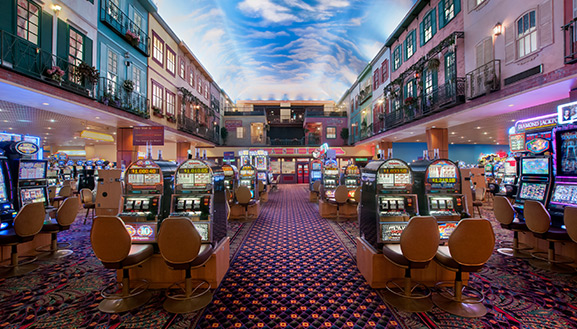One of the primary ways that casinos boost local economies is by attracting tourists from outside the area.
Casino tourism is a growing phenomenon that involves traveling to destinations specifically to gamble at casinos. This form of tourism has become increasingly popular in recent years, with many cities and countries around the world investing in the development of casino resorts to attract tourists and boost their local economies. But what exactly is casino tourism, and why is it significant for local economies?
In a nutshell, casino tourism refers to the travel and tourism activities associated with visiting casinos. This can include staying at casino resorts, playing casino games, attending casino events and shows, and exploring local attractions and amenities that are part of the casino experience. Casino tourism can occur in a variety of settings, from Las Vegas-style destinations with numerous casinos and hotels to smaller towns or cities with a single casino.
Recent years, casino tourism has become an increasingly important part of the tourism industry, with some destinations relying heavily on the revenue generated by casinos to support their economies. For example, in Macau, the Chinese territory known as the “Las Vegas of Asia,” the casino revenue accounts for over 80% of the government’s budget. Even though the Chinese anti-corruption regulations in place for illegal online gambling causes a reduction in the revenue.
In the United States, Las Vegas and Atlantic City are both known as major casino destinations that generate billions of dollars in revenue each year.
How casino tourism boosts local economies
Casinos have a significant impact on the economies of the communities where they are located. In addition to creating jobs and generating tax revenue, casinos can also contribute to the growth of other local industries, such as hospitality, entertainment, and retail.
One of the primary ways that casinos boost local economies is by attracting tourists from outside the area. These visitors typically spend money on a variety of goods and services, such as lodging, food and beverage, transportation, and entertainment. In many cases, casino resorts are designed to offer a complete entertainment experience, with a range of amenities such as restaurants, bars, nightclubs, shopping malls, and spas, all of which can contribute to the local economy.
In addition, casinos can provide a significant source of tax revenue for the government. This revenue can be used to fund public services and infrastructure, such as roads, schools, and hospitals. In some cases, governments may also use casino revenue to fund social programs, such as addiction treatment and education.
Analysing the economic impact of casinos
The economic impact of casinos on local economies can be assessed using various measures, and the presence of top online casinos, only adds to this impact. One widespread approach taken by top online platforms like Royals Blue, involves examining the direct and indirect economic benefits produced by the casino industry. Direct benefits encompass the jobs and revenue generated by casinos themselves. Meanwhile, indirect benefits pertain to the additional economic activity spurred by the spending of casino employees and patrons.
Another method to gauge the economic impact of casinos, is by analyzing their multiplier effect. This concept suggests that the economic advantages of casinos can permeate the local economy, stimulating further economic activity in related industries. For instance, a casino might draw in numerous visitors who then spend their money at local restaurants, hotels, and shops, creating a multiplier effect that bolsters the local economy.
Opportunities
One of the biggest opportunities of casino tourism is its potential to attract large numbers of tourists and generate significant revenue for local businesses. Casinos often offer a range of amenities, such as hotels, restaurants, and entertainment, which can create additional employment opportunities for residents. Moreover, casinos often provide tax revenue for local governments, which can be used to fund public services and infrastructure.
Threats
Despite the potential benefits, casino tourism also presents a number of threats to local economies and communities. For example, gambling addiction can lead to financial ruin and social problems, which can have a negative impact on local families and communities. In addition, the presence of casinos can lead to increased crime rates and social problems, which can create additional costs for local governments and law enforcement agencies.
Future trends
As the gambling industry continues to evolve, it is likely that the future of casino tourism will depend on several factors. For iGaming, sites like the best online casinos NZ is one trend that is likely to continue is the growth of online gambling, which may reduce the need for physical casinos in the future. Moreover, younger generations are increasingly focused on experiences rather than material possessions, which may lead to a shift away from traditional casino tourism towards more experiential forms of entertainment.































































































































































































































